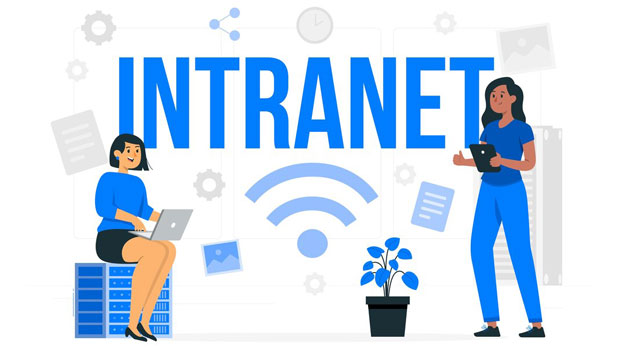With the development of the Internet, more and more applications and services rely on high-frequency requests to obtain data. However, in some cases, frequent requests may lead to the target service being banned, thereby affecting user experience and service availability. To alleviate this problem, reverse proxy has become a common solution. Reverse proxy can effectively distribute request traffic, hide the true IP address of the client, and even distribute traffic among multiple proxy servers by acting as an intermediary between the client and the target server, reducing the pressure on a single target server. This article will delve into how reverse proxy can alleviate the pressure on the target server by dispersing the request load, thereby avoiding bans caused by frequent requests. What is reverse proxy? Reverse proxy is a server configuration typically located between the client and the target server. Unlike forward proxies, reverse proxies are transparent to clients, meaning they cannot directly access the target server. All requests are first sent to the reverse proxy server, which decides how to forward the requests to the target server in the backend. Reverse proxy can optimize communication between clients and target servers through functions such as load balancing, caching, access control, and encryption. Its main purpose is to improve the scalability, reliability, and security of the system. How can reverse proxy alleviate target blocking caused by frequent requests? Frequent requests, especially those from the same IP address, may be perceived as malicious behavior by the target server, triggering the blocking mechanism. This kind of ban may result in service unavailability or restricted access. Reverse proxy can provide relief in this situation, which is reflected in the following aspects:1. Hide the real IP address of the clientThrough reverse proxy, the client's real IP address is hidden by the proxy server. The requests received by the target server will be displayed as the IP address of the reverse proxy server, rather than the IP address of the real client. This means that even if an IP address initiates a large number of requests, the target server cannot directly track the client's true location, thereby reducing the risk of being banned. 2. Disperse request trafficReverse proxy servers can be configured in the form of load balancing, which distributes client requests to multiple backend servers. This not only improves the overall performance of the system, but also prevents individual servers from being blocked due to excessive requests. In this way, reverse proxy helps to distribute traffic, thereby reducing the impact of frequent requests on the target server. 3. Request frequency control and current limitingReverse proxy servers can also control the frequency of requests by implementing a request flow limiting mechanism to prevent excessive requests from flooding into the target server. For example, a reverse proxy server can be configured to only allow a certain number of requests to pass through per second. If this limit is exceeded, the reverse proxy will automatically block or delay the requests. Through this method, reverse proxy can not only avoid blocking the target server, but also ensure the smooth operation of traffic. 4. Cache mechanismReverse proxy servers are typically equipped with caching capabilities. For repetitive requests, the reverse proxy can directly extract data from the cache without requesting the target server every time. In this way, the target server will not bear too much request pressure, effectively reducing the probability of being banned due to frequent requests. Caching can also improve response speed and enhance user experience. Other optimization functions of reverse proxyIn addition to alleviating the ban caused by frequent requests, reverse proxy can also provide other optimization functions:1. Security enhancementReverse proxy can protect the security of data transmission through encryption, SSL/TLS protocols, and other security measures to prevent man in the middle attacks and data leaks. Meanwhile, reverse proxy can hide the real address of the target server, increasing system security. 2. Anti DDoS attacksReverse proxy can effectively prevent distributed denial of service (DDoS) attacks. By distributing traffic to multiple proxy servers, reverse proxy can filter out bad traffic and ensure the normal operation of the target server. Reverse proxy servers can also monitor abnormal changes in traffic, respond promptly, and prevent attacks. 3. Traffic analysis and monitoringReverse proxy can also perform real-time analysis of traffic, helping administrators identify traffic patterns and potential threats. By monitoring data such as the source of traffic and request frequency, administrators can take timely measures to avoid bans caused by overly frequent requests. Limitations and Challenges of Reverse ProxyAlthough reverse proxy has many advantages, it is not perfect either. In some cases, reverse proxy may not be able to completely avoid target blocking. Here are some common limitations and challenges:1. Configuration complexityConfiguring a reverse proxy requires certain technical skills, especially in settings such as load balancing, current limiting, and caching. If not configured properly, reverse proxy may not effectively alleviate the blocking problem caused by frequent requests, and may even introduce new performance bottlenecks. 2. Resource consumptionReverse proxy servers may consume a significant amount of computing and network resources when processing a large number of requests, especially in high traffic situations. If the performance of the reverse proxy server itself is insufficient, it may become a bottleneck in the system, thereby affecting overall performance. 3. Possible abuseAlthough reverse proxy can effectively hide the client's real IP, it may also be used by malicious users to evade bans. If the target server can recognize the IP address of the proxy server, it may still trigger a ban. Therefore, reverse proxy is not a universal solution. SummaryReverse proxy, as a common network architecture tool, plays an important role in alleviating target blocking caused by frequent requests. By hiding the real IP address, dispersing request traffic, and controlling request frequency, reverse proxy can effectively alleviate the pressure on the target server and avoid bans caused by frequent requests. However, reverse proxies are not completely without limitations, and their configuration complexity, resource consumption, and abuse risks still need to be taken into account. In practical applications, enterprises should comprehensively consider the use of reverse proxies and other security measures based on their own needs and situations to achieve the best optimization effect.
Aug 04, 2025



































































